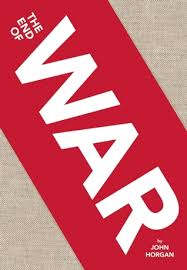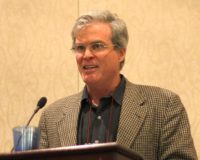John Horgan
The End of War

I’m writing an introductory textbook in peace and conflict studies. As a result, I’ve gone back to the half dozen amazing books on the changing history of warfare and violence that have been published in the last few years. None is better–and shorter–than John Horgan’s The End of War.
Horgan is a veteran science writer who is currently head of science writings (note the plural) at Steven Institute of Technology. Perhaps because he had been covering large scale changes in science for years, he approached the evolution of warfare from a scientific perspective and reached conclusions that few of my colleagues in international relations would readily expect.
He makes the case that war is not hard-wired into our genes or our human nature. We almost certainly have propensities that lead us to think in us v. them terms or even leave us predisposed to engage in violence when we feel sufficiently threatened or aggressive. War, he suggests, is a different intellectual and political animal. It is something leaders choose to do.
Again perhaps because he is a science journalist, Horgan explores the evidence that has accumulated over the course of our lifetimes that suggests that we are not consigned to a future in which there will always be wars. For instance, he delves into the 1986 Seville Statement that still remains the best single statement we have about human nature. Put simply, the scholars who drafted and signed the statement argued that our very humanity includes the capacity for both cooperation and confrontation. He then does much the same for arguments that wars are an inevitable outgrowth of our competition over scarce resources.
Horgan joins other better known social scientists like Steven Pinker in arguing that we have learned how to cooperate more often and more effectively over the centuries. Even more than Pinker and the others, he makes the case that going to war–just like physically attacking another human being–involves a choice and that we can always choose to act otherwise.
There is always choice involved. As Horgan argues (and as I will in my book), we have been “uninventing” war and violence as problems solving tools for centuries. He cites the work of the libertarian leaning John Mueller–the Woody Hayes Senior Research Fellow at the Mershon Center Ohio State–who makes the case that pragmatic, realistic leaders in the world’s governments and its militaries have decided that war has outlived its utility and that we are gradually finding ways of avoiding it.
I’m a peacebuilder and am writing my own book because I’m convinced that we are doing so way too gradually, and, like Horgan, we can harness the powers of science–and lots more–to speed it on its way out of the world’s public policy toolkit.
